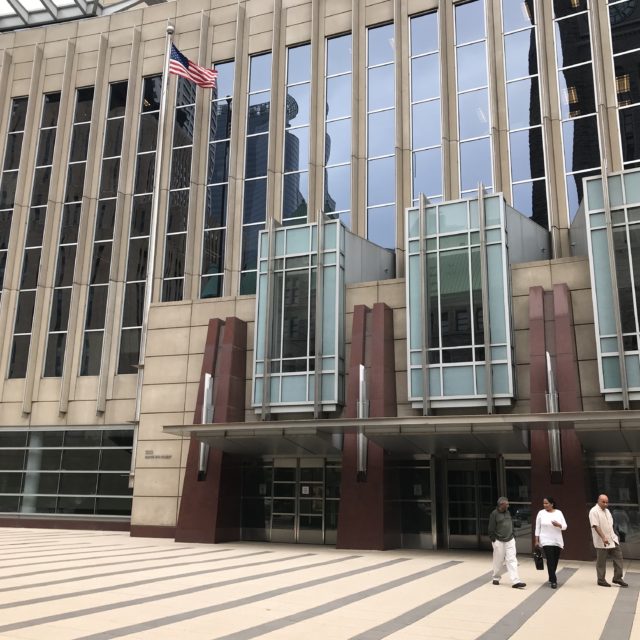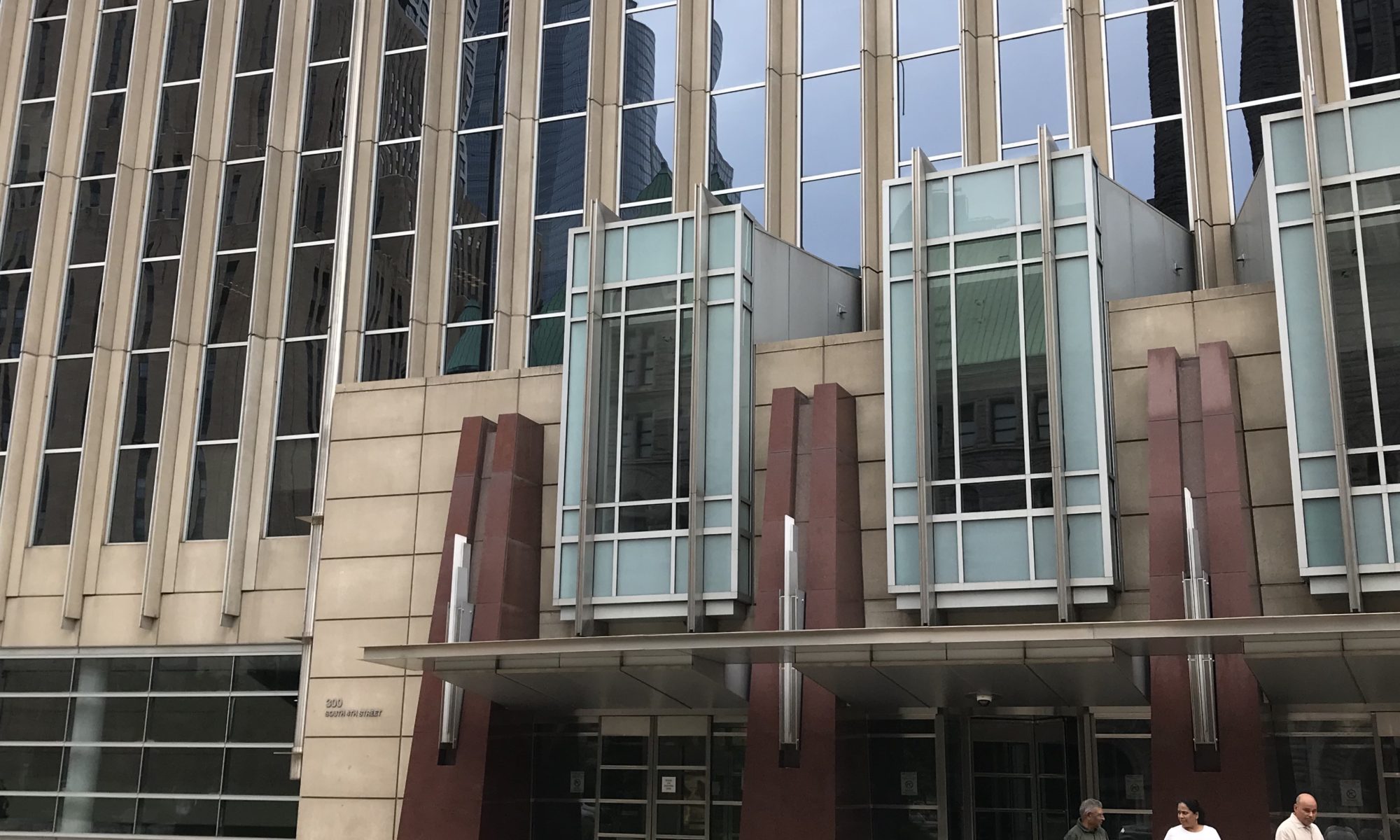
Supporters of the St. Thomas student accused of making bomb threats to the university leave the federal courthouse in Minneapolis on Friday. (Rachel Torralba/TommieMedia photo)
A third-year St. Thomas student accused of making threatening phone calls targeting the St. Paul campus will remain jailed until at least next week, following a hearing in federal court in Minneapolis on Friday.
Raymond G. Persaud, 20, of Blaine, might be released next week to the Fridley home of his grandmother and cousin, who is a police officer in Burnsville. Conditions of his release, which will be evaluated by a probation officer, would include an electronic monitor, no internet, and no access to weapons.
Persaud appeared in front of U.S. District Court Magistrate Judge Kate Menendez Friday afternoon.
Prosecuting attorney John Docherty originally pressed for Persaud to be under 24-hour surveillance in a halfway house based upon his understanding of Persaud’s motivation for the threats.
According to Docherty, the first threat was made to avoid an exam in an accounting class. The second bomb threat was triggered by a presentation in a history class, and the third was because Persaud had not done homework for a lab.
Docherty referenced Persaud’s interview following his arrest, noting that Persaud had said the lab homework was not a big deal, but he still made the third bomb threat.
It was a “cynical attempt to increase public fear,” Docherty said.
Persaud’s defense attorney, Fred Bruno, introduced the idea of releasing Persaud into third-party custody of his paternal grandmother and his cousin, Ryan Singh, a Burnsville police officer.
“The lesson has been learned already by my client,” Bruno said, speaking of Persaud’s current incarceration status.
His next court appearance has not been scheduled.
The judge ordered Persaud to undergo a court-ordered psychological evaluation and said he cannot leave Minnesota during the case.
Background on the case
Persaud, identified by St. Thomas as a commuter, was charged with one felony count Tuesday of “using an instrumentality of interstate commerce to make a threat to kill, injure or intimidate any individual, and to damage or destroy any building, by means of fire and explosive.”
In the past six months, three separate bomb threat incidents occurred at St. Thomas, most recently on Sept. 17. The U.S. Attorney’s Office said the FBI determined Persaud called via Voice Over Internet Protocol through multiple apps that allow the use of multiple phone numbers.
The first threat, called in on April 17 to the campus switchboard, informed officials of a bomb on campus. McNeely Hall was named in a second call that led to an evacuation of the building. A third call named another building, which resulted in officials closing the St. Paul campus.
On Aug. 20, a second threat was called into the campus switchboard, naming John Roach Center as the location of the threat. JRC was evacuated and all classes in the building were canceled for the remainder of the day.
According to the criminal complaint, St. Thomas’ Public Safety Department looked through the telephones connected to the campus WiFi network on the morning of Aug. 20 and found that one of those phones had been named “Ray’s phone.”
The third threat was called in at 7:24 a.m. Sept. 17, five months to the date after the first incident. The campus switchboard received “numerous calls in a row,” giving different information in each, according to St. Thomas Public Safety Director Dan Meuwissen.
On Sept. 17, the caller stated there were four bombs, naming O’Shaughnessy Science Center, the John Roach Center and the Anderson Student Center; in a later phone call the Facilities Design Center was named as well, according to the complaint. The buildings named temporarily closed and classes resumed in the buildings that afternoon.
Calls from the third threat were traced to Persuad’s home address, according to the U.S. Attorney’s Office.
Persaud has been suspended pending a school investigation, according to university President Julie Sullivan.
Abby Sliva, Rachel Torralba, Althea Larson and Samantha HoangLong contributed to this report.



